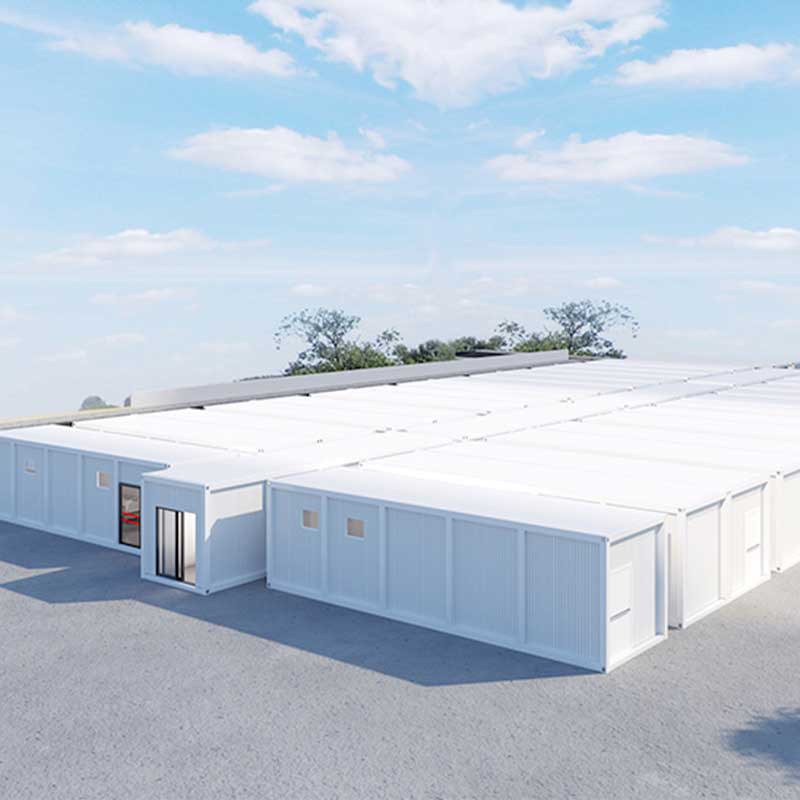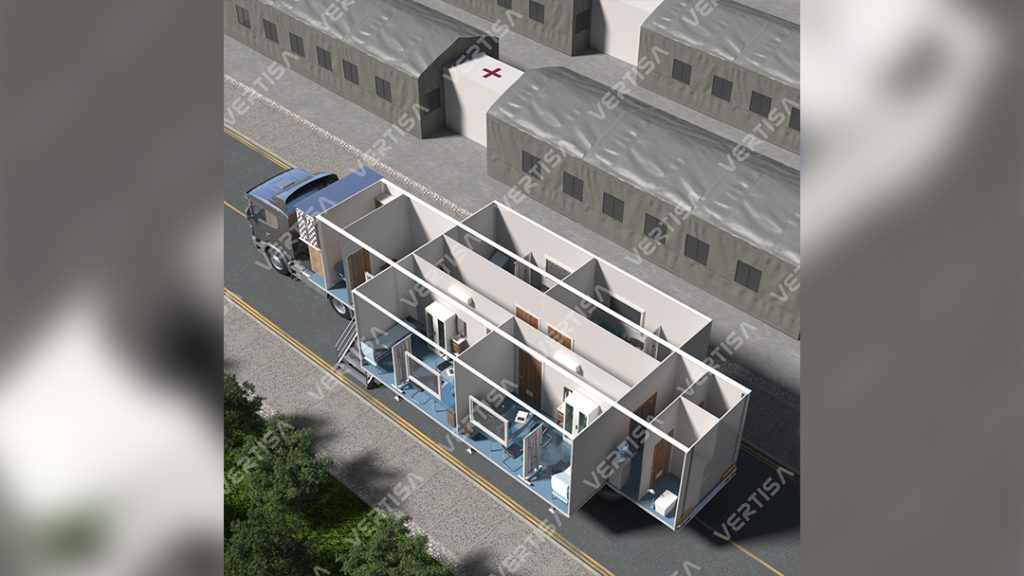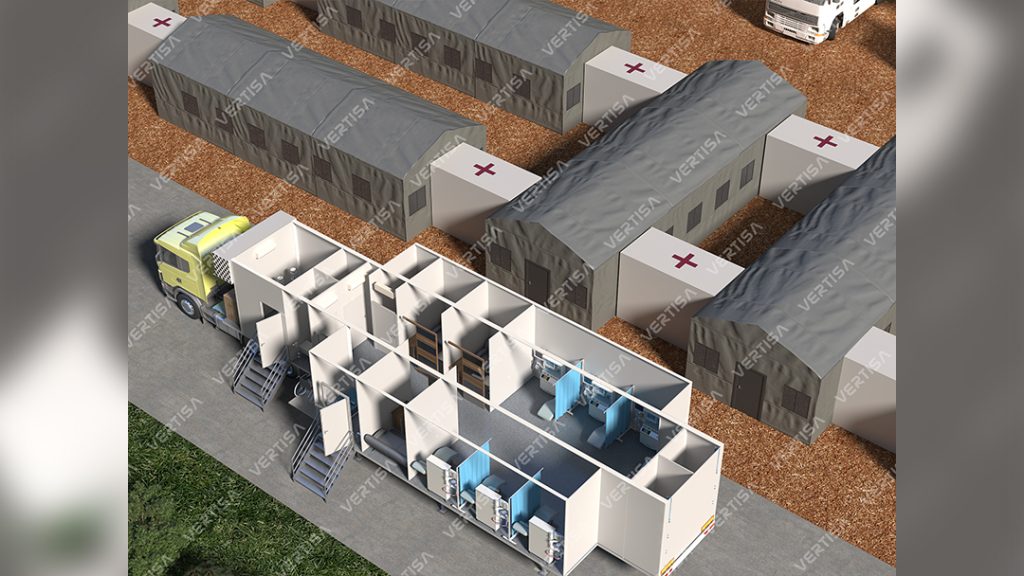Introduction:
The world of healthcare is constantly evolving, with new challenges and emergencies arising every day. To address these ever-changing needs, the concept of mobile hospitals has emerged as an innovative and adaptable solution. In this article, we embark on a journey to explore mobile hospitals in-depth, conducting a comparative analysis with other traditional and non-traditional healthcare facilities.
Healthcare systems worldwide face a dual challenge. On one hand, they must provide consistent, high-quality care to their communities. On the other, they must be prepared to respond rapidly to emergencies, public health crises, and situations that require temporary healthcare facilities. Traditional hospitals, while the backbone of healthcare infrastructure, are often ill-suited for these scenarios due to their fixed nature and extended construction timelines.
Mobile hospitals, on the other hand, offer a dynamic alternative. These facilities are designed to be flexible, fast, and highly adaptable, ensuring that healthcare institutions can provide optimal care, even in the most dynamic environments. This article provides a comprehensive overview of mobile hospitals, their unique features, and how they compare to other healthcare facilities.
Mobile Hospitals vs. Traditional Hospitals: A Comparative Study
The healthcare industry is no stranger to innovation and adaptation, especially when it comes to addressing the ever-changing needs of communities. In recent years, the concept of mobile hospitals has gained significant attention as a versatile and efficient solution to healthcare challenges. To better understand the impact of mobile hospitals, it is crucial to conduct a comparative study with their traditional counterparts.
Mobile Hospitals: A Modern Solution
Mobile hospitals, often housed in specially designed vehicles or rapidly deployable structures, represent a fresh approach to healthcare infrastructure. These facilities are engineered to be highly flexible, adaptable, and quick to deploy, making them ideal for a variety of scenarios, from disaster response to providing healthcare in remote or underserved areas. They excel in providing essential medical care where and when it is needed, bridging the gap between traditional healthcare infrastructure and urgent healthcare demands.
Traditional Hospitals: The Cornerstones of Healthcare
Traditional hospitals have long been the cornerstones of healthcare systems, offering comprehensive care in permanent, well-equipped facilities. These institutions provide a stable and consistent environment for delivering high-quality medical services. However, they are designed for long-term operation and often face limitations in rapidly adapting to unforeseen situations, such as natural disasters or sudden surges in patient numbers.
Comparative Analysis
- Construction Time and Deployment:
- Mobile Hospitals: Rapid deployment is a hallmark of mobile hospitals. They can be designed, manufactured, and set up in a fraction of the time it takes to construct traditional hospitals. This agility is especially valuable in emergency situations, where healthcare facilities must be established swiftly.
- Traditional Hospitals: Traditional hospitals, with their permanent infrastructure, typically have extended construction timelines, often spanning several years.
- Flexibility and Adaptability:
- Mobile Hospitals: Mobile hospitals are designed to be flexible, allowing for easy reconfiguration and expansion. They can quickly adjust to changing healthcare needs, making them invaluable in situations with fluctuating patient numbers.
- Traditional Hospitals: Traditional hospitals, with their fixed layouts, are less adaptable to major modifications, often requiring extensive construction work for adjustments.
- Cost-Efficiency:
- Mobile Hospitals: Mobile hospitals are generally more cost-efficient due to reduced construction time and controlled manufacturing processes. They offer substantial cost savings, making them an attractive option for healthcare institutions with budget constraints.
- Traditional Hospitals: Traditional hospitals can be expensive to build and maintain due to their complexity and longer construction periods.
- Quality of Care:
- Mobile Hospitals: Despite their mobility, mobile hospitals maintain high-quality care standards by incorporating state-of-the-art medical technology and adhering to healthcare regulations.
- Traditional Hospitals: Traditional hospitals offer a well-established reputation for high-quality care, but the quality ultimately depends on the staff, equipment, and protocols in place.
- Long-Term Viability:
- Mobile Hospitals: Mobile hospitals are designed to be long-lasting and accommodate future advancements in medical technology and healthcare practices. Their adaptability ensures continued relevance.
- Traditional Hospitals: Traditional hospitals, while durable, may face challenges in adapting to new healthcare trends and technologies, necessitating costly renovations.
Mobile Hospitals vs. Field Hospitals: Which One Fits the Bill?
In the realm of temporary healthcare facilities, two prominent contenders emerge: mobile hospitals and field hospitals. While both serve crucial roles in addressing healthcare needs during emergencies and temporary healthcare demands, they have distinct features that make them suitable for different scenarios. This article delves into the comparative analysis of mobile hospitals and field hospitals to determine which one best fits the bill for specific healthcare situations.

Mobile Hospitals: On the Move for Versatility
Mobile hospitals are renowned for their mobility and adaptability. Housed within specially designed vehicles or rapidly deployable structures, they can quickly reach the desired location, offering a wide range of medical services. Mobile hospitals are designed for versatility, making them ideal for various scenarios, including disaster response, public health crises, or providing healthcare in remote and underserved areas.
These facilities are well-equipped and staffed with healthcare professionals who can respond rapidly to medical emergencies. Mobile hospitals can be deployed to areas with limited healthcare infrastructure, addressing the immediate needs of the community.
Field Hospitals: A Fixed Solution for Temporary Needs
Field hospitals, on the other hand, represent a more traditional approach to temporary healthcare. These facilities are typically set up in fixed locations, such as tents or temporary structures. Field hospitals are well-suited for specific scenarios where healthcare needs are concentrated, such as mass casualty incidents, military operations, or humanitarian missions.
Field hospitals are designed to provide focused care in locations where traditional hospitals are not readily available. They are staffed with skilled medical personnel and equipped with essential medical supplies. Field hospitals are also capable of performing surgeries and treating injuries resulting from emergencies.
Comparative Analysis
- Mobility and Deployment:
- Mobile Hospitals: As the name suggests, mobile hospitals can be swiftly moved to different locations, making them highly adaptable for situations where immediate healthcare response is required.
- Field Hospitals: Field hospitals are stationary structures, which can limit their ability to respond quickly to evolving healthcare needs.
- Scope of Services:
- Mobile Hospitals: Mobile hospitals offer a wide scope of services and can handle various medical needs, making them versatile for different healthcare scenarios.
- Field Hospitals: Field hospitals are often tailored for specific medical services, such as trauma care or surgical procedures, and may lack the versatility of mobile hospitals.
- Infrastructure and Resources:
- Mobile Hospitals: Mobile hospitals come with all necessary infrastructure, including medical equipment and facilities, ready for deployment.
- Field Hospitals: Field hospitals often require the establishment of infrastructure, which can take time and resources.
Modular Hospitals vs. Traditional Hospitals: A Comparative Analysis
The healthcare landscape has witnessed a significant transformation in recent years, with a growing emphasis on flexibility, adaptability, and cost-efficiency in healthcare infrastructure. In this comparative analysis, we explore the key differences and advantages of modular hospitals in contrast to traditional hospitals.
Construction and Deployment:
Modular Hospitals: Modular hospitals are characterized by their rapid deployment capabilities. These facilities can be designed, manufactured, and set up in a fraction of the time required for traditional hospitals. This agility is especially valuable in emergency situations, enabling healthcare institutions to establish medical facilities swiftly.
Traditional Hospitals: Traditional hospitals, with their permanent infrastructure, typically involve extended construction timelines and planning phases. Their fixed nature may not align with the need for quick responses in emergencies or dynamic healthcare requirements.
Flexibility and Adaptability:
Modular Hospitals: Modular hospitals are designed to be adaptable and flexible. Their modular components can be easily modified, expanded, or reconfigured to meet changing healthcare needs. This adaptability is ideal for scenarios where patient numbers fluctuate, or medical specialties evolve.
Traditional Hospitals: Traditional hospitals have fixed layouts that are challenging to modify without extensive construction work. Major changes or expansions often require significant time and resources.
Cost-Efficiency:
Modular Hospitals: Mobile hospitals are generally more cost-efficient due to reduced construction time, standardized design, and controlled manufacturing processes. They offer substantial cost savings, making them an attractive option for healthcare institutions with budget constraints.
Traditional Hospitals: Traditional hospitals can be expensive to build and maintain due to their complexity, customized designs, and extended construction periods. Ongoing operational costs may also be higher.
Quality of Care:
Modular Hospitals: Despite their agility, modular hospitals maintain high-quality care standards. They are equipped with state-of-the-art medical technology and adhere to healthcare regulations, ensuring patients receive the same level of care as in traditional hospitals.
Traditional Hospitals: Traditional hospitals have a long-standing reputation for providing high-quality care, but the quality ultimately depends on the staff, equipment, and protocols in place.
Long-Term Viability:
Modular Hospitals: Modular hospitals are designed to be long-lasting and accommodate future advancements in medical technology and healthcare practices. Their adaptability ensures continued relevance.
Traditional Hospitals: While traditional hospitals are durable, they may face challenges in adapting to new healthcare trends and technologies, which can necessitate costly renovations.
Conclusion:
In the ever-evolving healthcare landscape, mobile hospitals have emerged as a dynamic solution to meet the dual challenge of providing consistent, high-quality care and responding swiftly to emergencies. Traditional hospitals, while essential, often fall short due to their fixed infrastructure and extended construction timelines.
Mobile hospitals offer adaptability, rapid deployment, cost-efficiency, and long-term viability. They serve as modern, flexible solutions, effectively bridging the gap between conventional healthcare infrastructure and the urgent requirements of dynamic environments.
Comparative analyses show that mobile hospitals outperform traditional hospitals in terms of construction time, flexibility, cost-efficiency, and adaptability. They excel in swiftly adjusting to changing healthcare needs.
In the comparison with field hospitals, mobile hospitals’ mobility and adaptability make them versatile for various scenarios, from disaster response to remote healthcare delivery.
Regarding modular hospitals, their rapid deployment, adaptability, and cost-efficiency align with the flexibility demanded by today’s healthcare landscape.
In conclusion, Vertisamodular has made significant contributions to the mobile hospital sector. Their expertise shines in rapidly deploying mobile hospitals during crises, reaching remote areas, and ensuring healthcare service continuity during emergencies. Their experience underscores their commitment to innovative healthcare solutions, addressing the ever-changing healthcare sector’s needs. As the healthcare field evolves, mobile hospitals and leaders like Vertisamodular will continue to play a pivotal role in providing high-quality care where it’s needed most.



